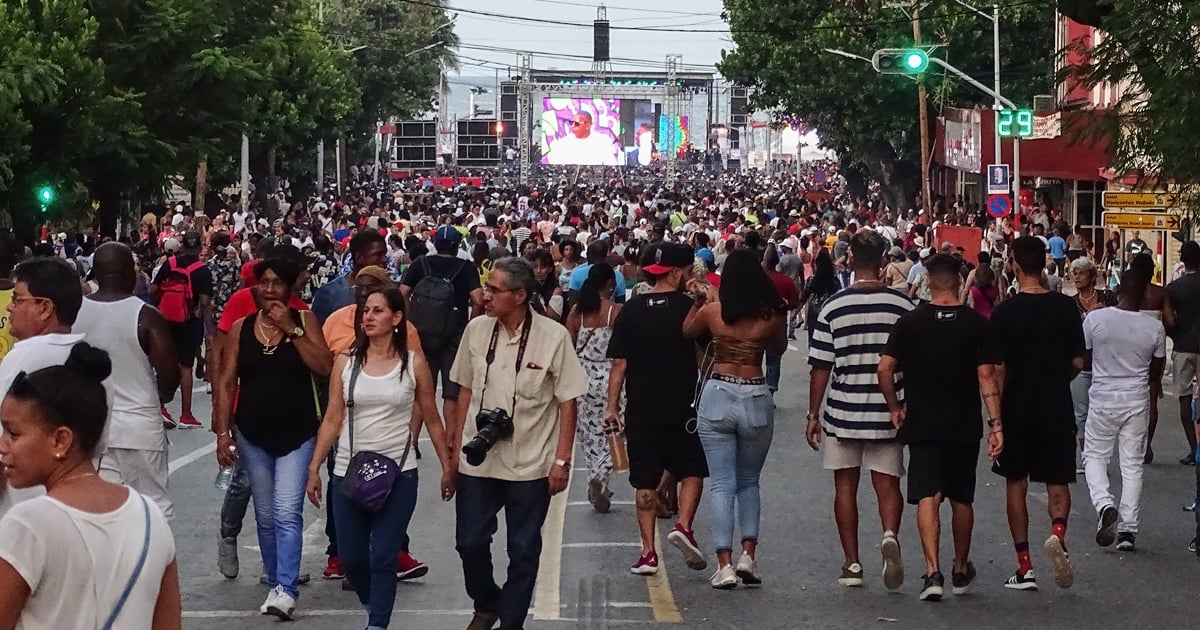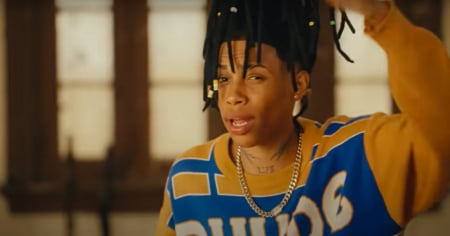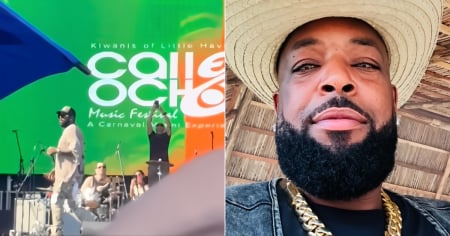
Related videos:
Reggaeton, with its omnipresence in everyday life in Cuba, has once again come under criticism from official media, which are now demanding stricter regulations regarding its dissemination in state entities.
The controversy reignited after the installation of a brewery in Watkins Park in Matanzas, a space frequented by children, where "inappropriate content" songs for minors were heard, reported the government-affiliated newspaper Girón.
The debate is not new; for years, reggaeton and its variants—trap and dembow—have sparked controversies ranging from their cultural influence to their negative impact on society.
The newspaper points out the "repetitiveness" of their melodies, the "lack of musical quality" of their performers, and the constant "objectification of women" in their lyrics.
Meanwhile, their supporters argue that it is a legitimate expression of youth and an undeniable part of Cuban urban identity.
The article by Girón, titled "Reggaeton Shouldn't Be Everywhere," calls for regulation and censorship, arguing that songs like "La Totaila" by Bebeshito are heard in spaces frequented by children.
"It is undeniable that certain limits must be set. Something as seemingly insignificant as the message of a song can be interpreted in countless ways, and a child's mind is open to all kinds of interpretations. The responsibility of choosing what our children listen to and what they do not, depends on institutions when the music plays within their vicinity, but at home, this responsibility entirely falls on the parents," emphasizes the text.
The suggestion, however, also raises several questions, especially in a totalitarian context like Cuba: who decides what music should be listened to? Should it be censored or simply regulated in its consumption?
Although an absolute ban seems unfeasible, given the strong roots of reggaeton in popular culture, the article suggests that rules should be implemented to prevent its exposure to children in public places.
Beyond the controversy, Cuban reggaeton has evolved into a far-reaching commercial phenomenon thanks to artists like Gente de Zona, El Taiger, and Bebeshito himself.
Its main figures attract crowds and generate significant revenue both on the island and in Miami and Italy, establishing themselves as one of the most lucrative music industries in the country.
Its influence extends from the speakers of motorinas to nightclubs, permeating both public and private spaces, making it nearly impossible to eradicate.
Frequently Asked Questions about the Regulation of Reguetón in Cuba
Why does the official Cuban press criticize reggaeton?
The official Cuban press criticizes reggaeton due to its content deemed inappropriate for minors, its musical repetitiveness, and the objectification of women in its lyrics. These criticisms particularly resurface when reggaeton is played in public spaces frequented by children, such as the recent case of the brewery in Watkins Park in Matanzas.
What measures are being proposed to regulate reggaeton in Cuba?
It is proposed to implement regulations that prevent the exposure of reggaeton to children in public spaces. Although the aim is not to completely ban the genre due to its cultural significance, the intention is to moderate its dissemination in places where it can be heard by minors.
How does reggaeton affect Cuban culture?
Reggaeton is considered by some as a "cultural pandemic", while others see it as a reflection of social reality and an unavoidable part of contemporary music in Cuba. Its influence is significant, as it is one of the most lucrative music industries on the island, with a strong impact on Cuban urban identity.
What is the Cuban government's stance on reggaeton?
The Cuban government, represented by Miguel Díaz-Canel, has acknowledged the need to integrate reggaeton into the cultural policy of the Cuban Revolution. Although it was previously censored, the aim now is to set aside elitist prejudices and recognize its cultural and social impact.
Filed under:





